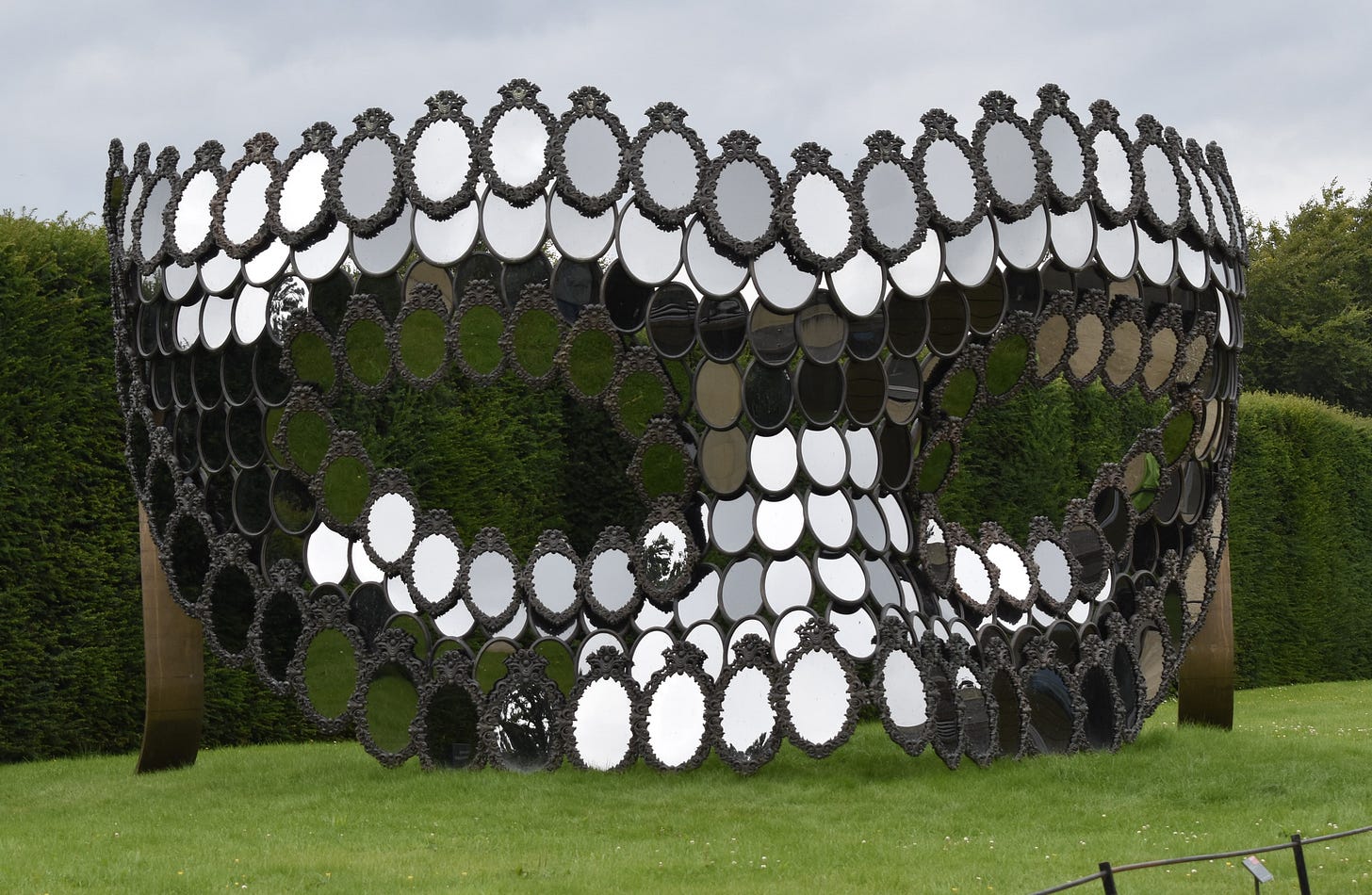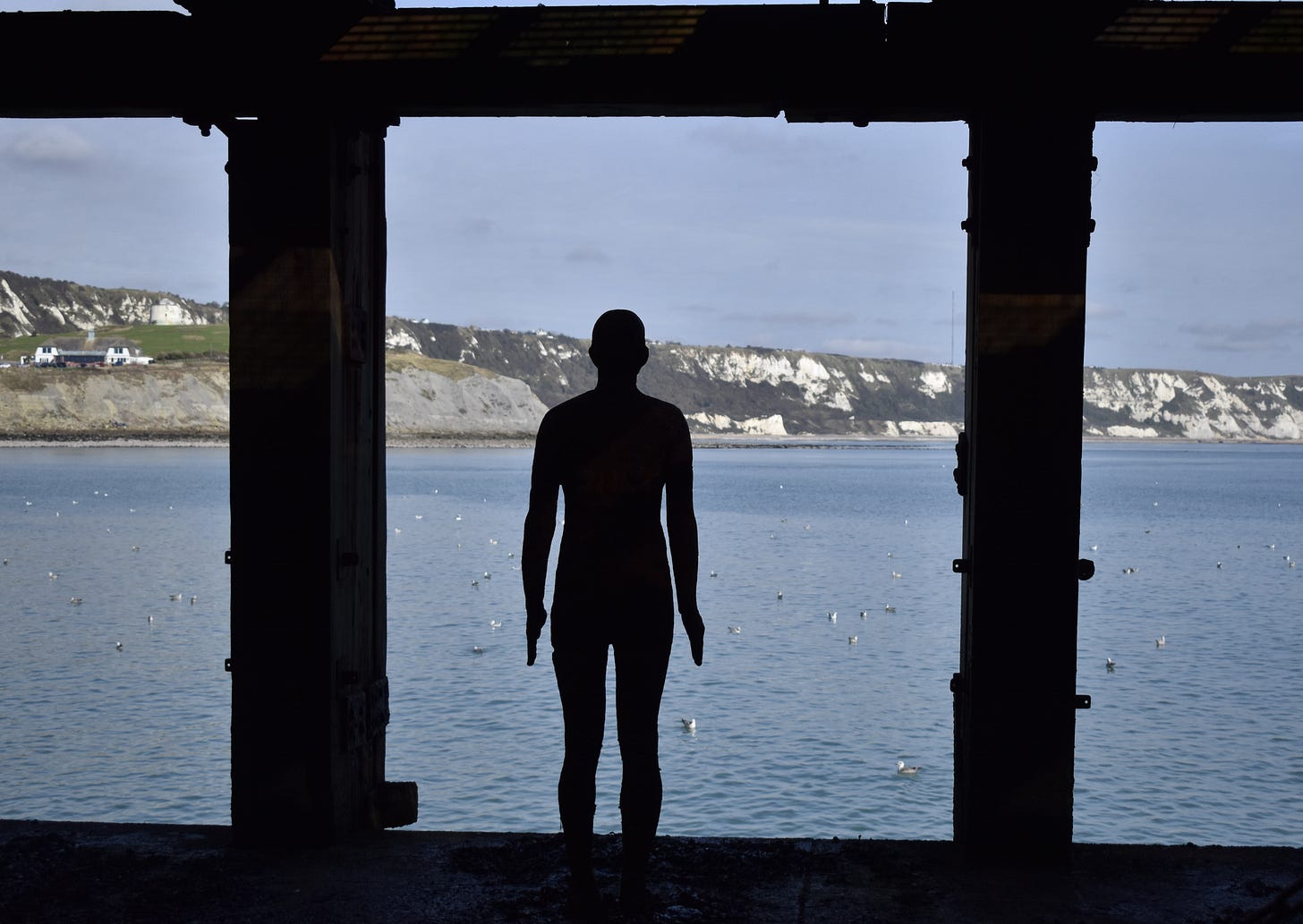On being visible (or not)
Visibility and Masking and Taking Up Space, Oh My!
I have many contradictory feelings about visibility.
As a teenager I loved drama and acting, I was in a few plays and pieces written by my friends but I hated improv. The script was the ultimate safety net for an introverted and socially awkward teenager. Looking back through the lens of my neurodivergence I can see why having someone else’s words to say felt so comfortable and having to make something up on the spot filled me with fear.
It was during these years of wanting to be seen on stage that, I was also learning about the vulnerability that came alongside it. As a (then undiagnosed) autistic I was learning to mask as a way of keeping myself safe from the fallout of my unwittingly made social missteps. I have often (half) joked that I learnt narrative theory as a way to navigate interaction with other people, it was a core part of my masking strategy. In the absence of a structure, I created my own scripts, sometimes more successfully than others.
I have quite early memories of thinking there were parts of myself that I should keep hidden. Over the years, this seed grew into the narrative that told me I was a bad person, I was broken, that who I was wasn't ok. I learnt there was safety in going unnoticed, and so over the years I stopped trying to be visible and learnt to make myself small, to stay safe.
As part of my counselling training, in my thirties, I worked a lot on becoming more comfortable with being visible and taking up space. For a while this seemed to have worked, and I felt less scared to be seen and excited by the possibilities that this opened up for me.
Unfortunately, I was still missing a vital piece of information about myself and over time the old narrative crept back in. Following a particularly nasty period of autistic burn out, in my late thirties, it seemed to be back in control. However, this time, it didn’t get to stay there because my autistic identity was brought into my awareness and even though it was a difficult time, it still remains the single most healing thing that has happened to me.
I now know that I am not broken and that I am allowed to take up space (although I don't always want to).
I'm also more aware of how much energy it takes me to be visible and connect with others (I am definitely an introvert) and I'm trying to learn to balance my different needs. Because I do still want to be seen and acknowledged only now, I want it to be based on all of me, not just the parts that other people like best and deem acceptable for a woman in her forties.
This has played a large part in my unmasking in a range of places including, coming out as neurodivergent professionally, being ok with stimming in the pub, and even writing more about my own experiences here and on my website. This year I have been challenging myself to take up even more space by being part of conferences and panels, talking about being a neurodivergent therapist. I’m not just carving out my own spaces online and with friends but asking for room in spaces created by others (although nearly all of them are neurodivergent or at the very least neuro-affirming).
At the end of this week, I'm taking another step toward visibility by presenting my model of neurodivergent wellbeing at a conference for the first time. It’s a big step to not just share my lived experience or small parts of my work, but something I have worked on for years and which is precious to me. I’m excited and a little anxious to see how it goes.
I’m doing it because can't go back and let my younger self know all the things, I've learnt about neurodivergence, but I can honour her by taking up the space which she was too scared to. And I can share the things that have helped me with other people, so they don’t have to wait as long as I did to know that who they are is ok.
What’s your relationship with visibility? How has it changed over the years?
What helps you to take up space?
Is there anything you would like to share with your younger self?
If you are interested in my model (and neurodivergence in general) you can find out more details about it here. Most sessions are recorded if you can't make it on the day. Let me know if you're going to be there.






"I have quite early memories of thinking there were parts of myself that I should keep hidden. Over the years, this seed grew into the narrative that told me I was a bad person, I was broken, that who I was wasn't ok. I learnt there was safety in going unnoticed, and so over the years I stopped trying to be visible and learnt to make myself small, to stay safe."
Oh, I relate to this so much, Louise. I have distinct memories of watching people in order to know how to act and what to say. And sometimes the mask would slip and people would say "Becky that wasn't like you!" Except it was! I, too, spent a long time thinking I was a bad person and that this was why bad things happened to me - because the people doing the bad things could see the real me.
I want to be more visible and open about my needs but I find it hard because I am still awaiting on my "official" autism diagnosis. I feel like until I get it, I'm being a fraud but I'm having to do it on the NHS and it's a 3-year wait. 3 years seems like a long time to go without my needs being met...
Thank you so much for writing, Louise. 🖤